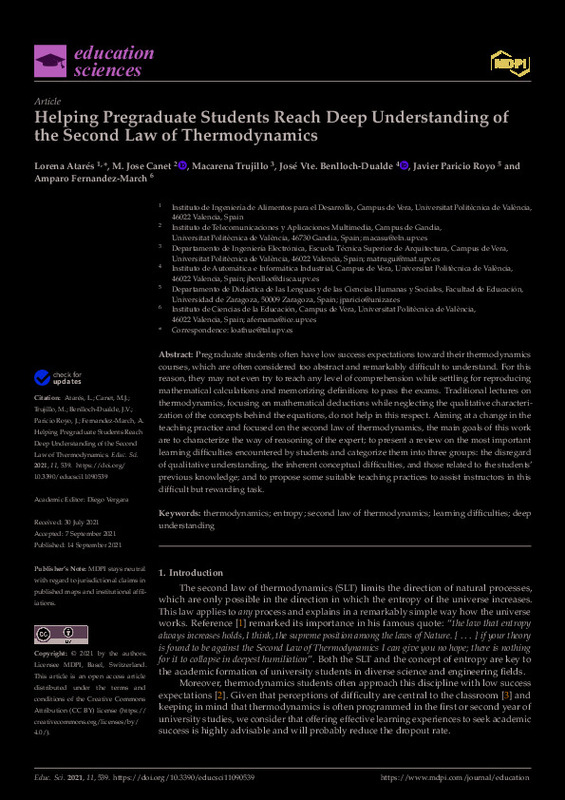JavaScript is disabled for your browser. Some features of this site may not work without it.
Buscar en RiuNet
Listar
Mi cuenta
Estadísticas
Ayuda RiuNet
Admin. UPV
Helping Pregraduate Students Reach Deep Understanding of the Second Law of Thermodynamics
Mostrar el registro completo del ítem
Atarés Huerta, LM.; Canet Subiela, MJ.; Trujillo Guillen, M.; Benlloch-Dualde, J.; Paricio Royo, J.; Fernández-March, A. (2021). Helping Pregraduate Students Reach Deep Understanding of the Second Law of Thermodynamics. Education Sciences. 11(9):1-14. https://doi.org/10.3390/educsci11090539
Por favor, use este identificador para citar o enlazar este ítem: http://hdl.handle.net/10251/186794









